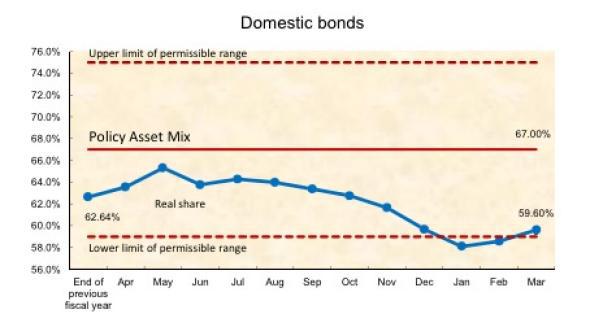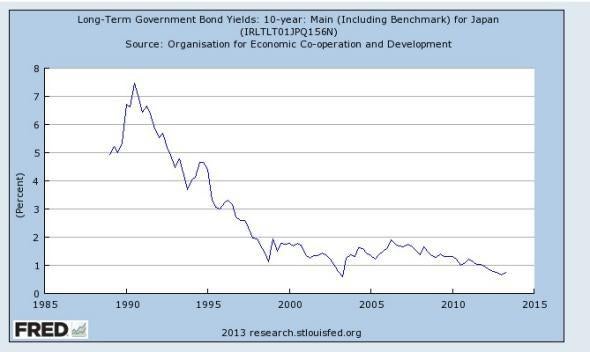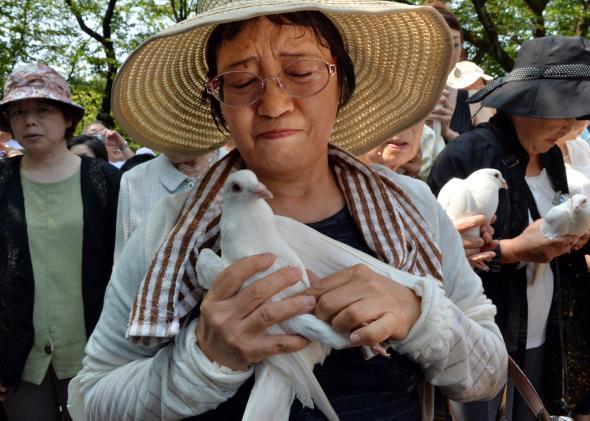This post originally apeared in Business Insider.
By Saranya Kapur

Abenomics, the controversial Japanese economic program, has led to an upsurge in popularity for their architect Shinzo Abe, Japan’s prime minister. The program is a potent cocktail of both aggressive monetary policy and loose fiscal policy. But the increasing public debt and declining bond yields that easy monetary policy brings has one demographic group worried: Japan’s enormous population of pensioners.
Lower bond yields will send Japanese pension funds, which are highly exposed to government debt, spiraling into losses, reports Bloomberg. The world’s largest retirement savings fund, Japan’s $1,25 trillion Government Pension Investment Fund, will be particularly hard hit. It has nearly 60 percent of its portfolio in Japanese government debt.

FRED
Adjusted for inflation, real yields on Japanese government bonds are now negative.
Takatoshi Ito, head of an expert panel on public investments, told Bloomberg that the fund is exposed to “too much interest-rate risk,” and needs to invest in higher-yield providing alternatives such as real-estate trusts, infrastructure and private-equity investments and commodities. The panel will issue its final recommendations next month.
Meanwhile, the pension fund behemoth is taking small steps toward diversification. Last week, it announced measures that indicated it was in the process of separating out some of its assets and setting up a ‘baby fund’ to diversify its investments.
Japan’s population is sharply in decline. 23.1 percent of Japan’s population is over the age of 65. Japan’s age dependency ratio, the ratio of people older than 64 to the working-age population was 39 as of last year. As a comparison, “young” countries like India have a dependency ratio of 8. The Japanese savings rate has also been falling for the last five years, which brings into question the sustainability of Japan’s debt financing.
See also: It Sounded Like Janet Yellen Introduced a Third Mandate for the Fed
